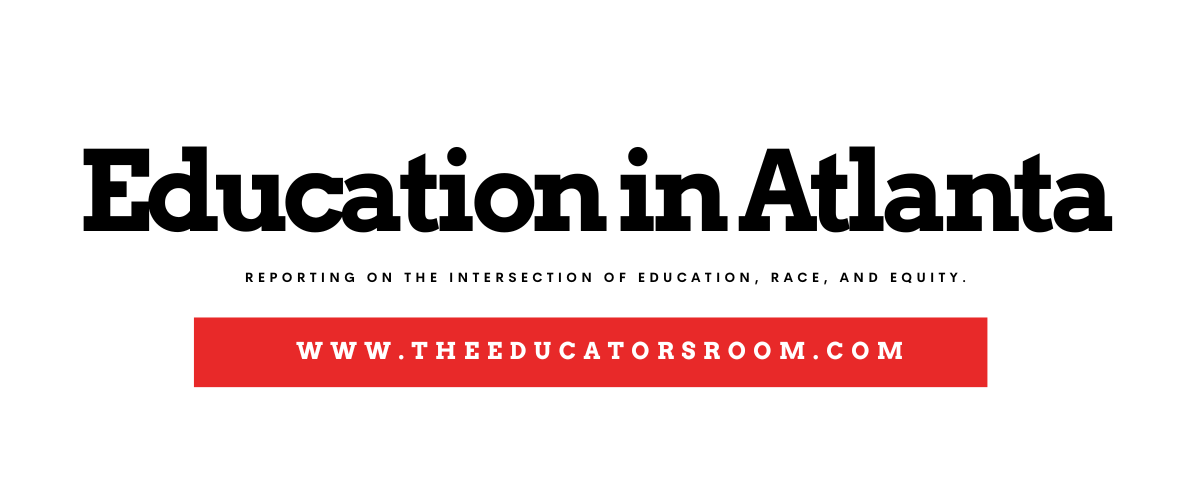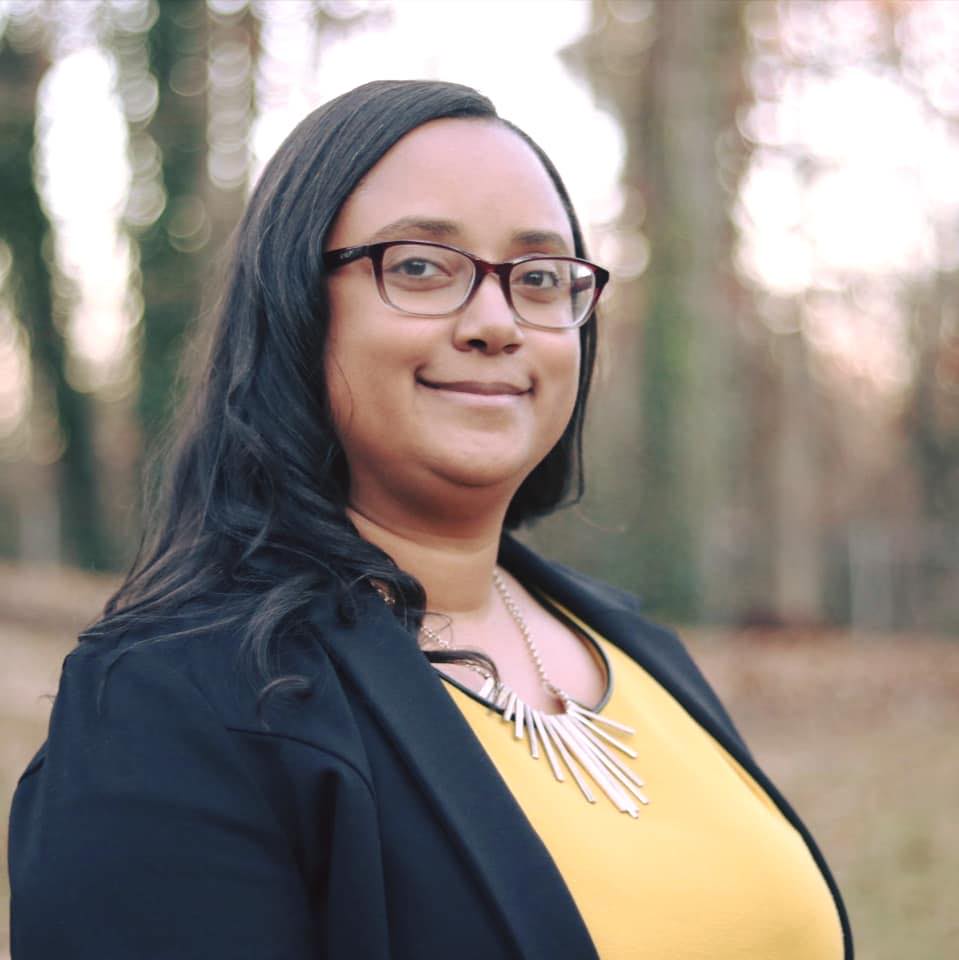Overview:
Laura Judge is running for Cobb County Schools Post 5 school board seat. This area includes Walton Wheeler and Pope High School.
On May 21, during the General Primary elections, voters in the metro Atlanta area will choose representation for various elected seats, including school board seats. As is customary for us as an independent news organization, we have approached every candidate who qualified to run with a series of questions for them to answer for the voters of Atlanta.
Once each candidate returns their questionnaire, their answers are posted as-is and without commentary from the editorial team, minus grammatical corrections. If any candidate did not receive a questionnaire, they can email our editorial team at editor@educationinatlanta.com
Post 5: includes areas such as: Walton High School, Wheeler High School, and Pope High School.
Why are you running for the Board of Education? If (re)elected, what will be your priorities?
I’m running for a seat on the Cobb Board of Education to bring my experience as an involved parent in the district and community to help shape policies that reflect our community’s values and needs. My focus is on enhancing student safety, literacy, and financial transparency, coupled with a strong commitment to improving communication between the board and parents. I believe in building an educational environment that supports our students, involving the community in the decision-making process, and ensuring our schools are places where every child can succeed.
Is there a particular issue that motivates you to serve on the board of education?
One of my primary motivations for serving on the school board is my children. Their experiences in our local schools have given me firsthand insight into the strengths and challenges of our education system. This personal connection drives my commitment to improve and advocate for educational policies that benefit all students in our community, ensuring they receive the best education possible.
What experiences or skills have prepared you to be a board member?
My experience as the Education Chair on the Cobb Commission District 2 Community Cabinet, coupled with active participation in local and council PTAs, has thoroughly prepared me to be an effective board member. These roles have honed my skills in leadership, community engagement, and policy advocacy, equipping me to navigate the complexities of educational governance. My current role in running a business has equipped me with a strong understanding of financial and operational management—key skills for overseeing the school district’s budget and resources effectively. Additionally, my military service has instilled in me the values of discipline, teamwork, and strategic planning, all of which are essential when working collaboratively on the school board to achieve the best outcomes for our students and community. Last but certainly not least, my firsthand experiences as a parent in the district give me valuable insight into the practical impacts of board decisions on students and families.
In what school district or community activities/organizations have you been involved?
Elementary PTA Membership Chair, Middle School PTSA Reflections Chair, Council PTA Co-VP, County Commissioner’s Community Cabinet Education Chair, Youth Track Parent Volunteer, East Cobb Business Association, East Cobb Civic Association, Moms Demand Action Cobb County Legislative Lead
Why should you be elected to the Board of Education?
I should be elected to the Board of Education because I care deeply about our students, parents, and the broader community. My background and active involvement in the district have shown me the needs and strengths of our schools firsthand. I’m committed to setting aside partisanship to focus solely on what’s best for our students and schools, ensuring our district continues to improve and thrive.
What differentiates you from the other candidates and/or board members?
What sets me apart from the incumbent and current board majority members is my direct connection to the schools as a parent of children currently in the system. What sets me apart from them and the other candidate in this race is that I focus on issues within my control as a board member and avoid overstepping into areas that aren’t under our jurisdiction. Most importantly, I am committed to listening to all voices in my area, regardless of whether they have voted for me, ensuring that every constituent feels heard and represented.
What attributes and behaviors are essential for school board members?
To me, essential attributes and behaviors for school board members include strong communication skills, openness, and accountability. These leaders must be committed to transparency, able to engage constructively with the community, and possess a deep understanding of educational policies and school governance. It’s also crucial for board members to be collaborative and objective, willing to listen to various perspectives, and make decisions that are in the best interest of all students. Furthermore, they should approach their role with integrity and a commitment to promoting excellence within the education system.
What is the best way to address differences of opinion on or between the board and the administration?
The best way to address differences of opinion between board members or with the Superintendent is through open, respectful communication and dialogue. It’s important to establish a culture of collaboration where different perspectives are valued and considered. Facilitating workshops or retreats that focus on team-building and effective communication can also help. Regularly scheduled sessions for discussing issues openly before making decisions can ensure that all viewpoints are heard and contribute to more unified and thoughtful outcomes.
Could you support a board decision you did not vote in favor of? Why or why not?
While I always strive to support board decisions collectively, I must remain firm if a decision contradicts the clear wishes of my constituents. I believe in representing their voices faithfully. However, I also recognize that in a democratic system, the majority rules, and this is the beauty of democracy. If a decision is made by the majority, I respect the democratic process, understanding that it reflects the collective will, even when it diverges from my personal vote or the specific desires of those I represent.
How can the board be accessible to the community? To specific community groups?
To ensure the board is accessible to the community and specific groups, I am committed to meeting people where they are. This involves hosting small forums and townhalls in various neighborhoods to facilitate face-to-face engagement. Additionally, for those who may not be able to attend in person, I support holding regular Zoom meetings to broaden participation. I also encourage ongoing communication through email, ensuring that everyone has an opportunity to have their voices heard, regardless of their ability to attend meetings physically. This approach helps in maintaining transparency and responsiveness to all community members’ needs.
What issues do you believe your district needs to address in its academic program and offerings?
In our district, addressing academic programs and offerings involves enhancing reading and literacy programs to ensure every student achieves grade-level proficiency. We also need to bolster our special education services to better support students with diverse learning needs. Additionally, providing more comprehensive support and professional development opportunities for our teachers is crucial. These efforts will empower our educators to deliver high-quality instruction tailored to the needs of all students, fostering a more effective learning environment.
What should your school district do to prepare students as citizens better?
To better prepare our students as citizens, our district should continue to strengthen our already robust technical and academic programs while integrating more comprehensive social-emotional learning initiatives. Programs like No Place for Hate are essential as they address and help dismantle the spread of hate in our community, promoting a culture of inclusivity and respect. By embedding these programs alongside our academic offerings, we can develop well-rounded individuals who are not only academically proficient but also socially responsible and empathetic citizens.
What can be done to improve student achievement and ensure everyone who graduates is college-ready?
To improve student achievement and ensure all graduates are college-ready, we must first thoroughly analyze the data to understand where our district stands. While my area shows strong college readiness, it’s clear that students with diverse learning needs are often overlooked. Addressing this requires targeted support programs and inclusive teaching strategies that cater to varied learning styles and challenges. By focusing on these areas, we can ensure that every student, regardless of their unique needs, has the tools and support necessary to succeed in college and beyond.
What are your thoughts on your school district’s programs for special education students, English Language Learners (ELL), and gifted students?
Regarding our district’s programs for special education students, English Language Learners (ELL), and gifted students, I’m aware that there are current changes happening in the special education area. I’ve heard varying accounts from families and educators about these changes. It’s crucial for me to sit down with the district administration team to thoroughly understand what aspects of these programs are functioning well and where improvements are needed. Such discussions will help ensure that all our programs are effectively meeting the diverse needs of all students.
What is your vision for education in this community?
My vision for education in this community strongly focuses on enhancing literacy, ensuring the safety of our students, and maintaining financial transparency within our school district. I believe that by prioritizing these core areas, we can provide a solid foundation for all students to succeed academically and personally. Strengthening literacy programs across all age groups will equip our students with essential skills, while a secure learning environment and clear financial accountability will foster trust and support from the entire community.
What are the major issues (s) facing your school district? Public education?
The major issues facing our school district include a significant lack of communication and financial transparency, which impacts trust and effectiveness within our educational system. In the broader scope of public education, challenges include insufficient funding and the controversial use of vouchers that divert necessary resources away from public schools, weakening the public education system’s ability to serve all students equitably. These issues necessitate focused reforms and increased advocacy to ensure public schools receive the support and funding needed to provide high-quality education to every student.
What are your areas of concern regarding student achievement in your district?
My primary areas of concern regarding student achievement in our district focus on literacy and ensuring the safety and support of all our students, especially through adherence to their Individualized Education Programs (IEPs) and 504 plans. It’s crucial that these plans are implemented correctly to provide the necessary accommodations and support, enabling each student to succeed in a safe and supportive learning environment.
Do you have specific suggestions for improvement?
Yes, I have specific suggestions for improvements in our district. For enhancing literacy, I recommend implementing science-based structured literacy programs that are proven to effectively develop reading skills across diverse student populations. For improving financial transparency, I propose hosting more community forums. These forums would provide a platform for open dialogue about how tax dollars are spent, ensuring that the community is fully informed and involved in financial decisions affecting our schools. Also, in addition to strictly adhering to IEPs and 504 plans, I suggest bolstering support for what teachers and families need to effectively implement these plans, rather than resorting to litigation. By providing the necessary resources, training, and open lines of communication, we can ensure that our approach to special education is both supportive and collaborative, focusing on the best outcomes for students without the strain of legal proceedings.

